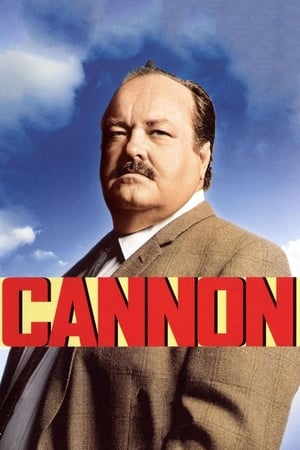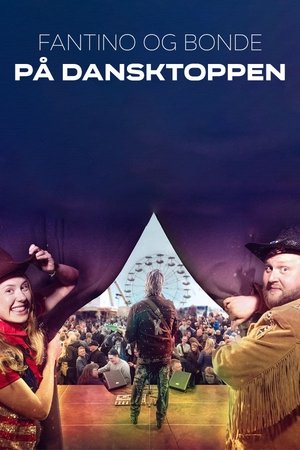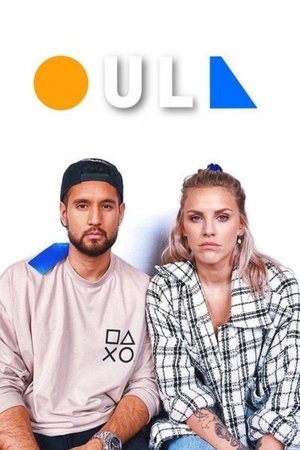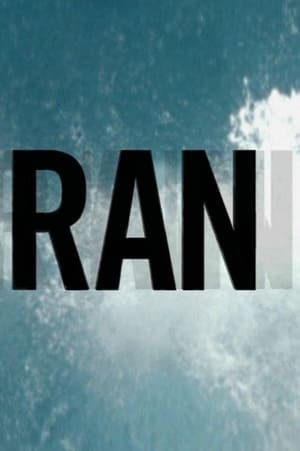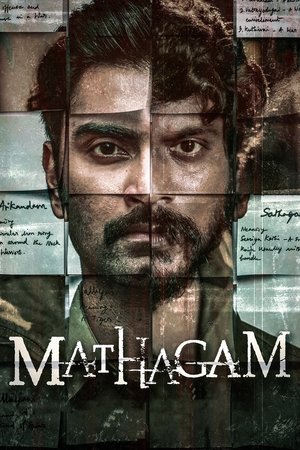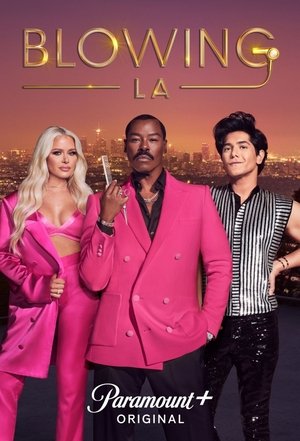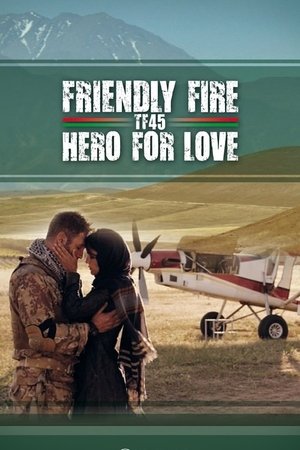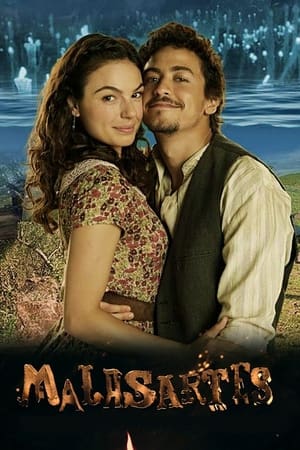Reeling in the Years
Each episode looks back at the news and events of a particular year, using news archive footage, along with subtitles as the means of narration, to recount notable Irish and international events of the time.
Type: tv
Season: 6
Episode: N/A
Duration: 25 minutes
Release: 1999-01-22
Rating: 9.3
Season 1 - Reeling in the Years
1999-01-22
Charles Haughey leads his first Ard Fheis as Taoiseach. PAYE workers stage the largest labor protest in Irish history. A Boomtown Rats concert is banned in Dublin but later held in Leixlip. The Soviet occupation of Afghanistan leads to a U.S.-led boycott of the Moscow Olympics. Johnny Logan wins Eurovision for Ireland. A metal detectorist discovers the Derrynaflan Chalice. Dermot Morgan debuts as ‘Father Trendy.’ Thatcher visits Ireland for Anglo-Irish talks. The SAS ends the Iranian Embassy siege. A failed U.S. rescue in Iran worsens tensions, and war erupts between Iran and Iraq. Archbishop Oscar Romero is assassinated. Irish TV sees new drama and Gabriel Byrne's rise. "Who Shot JR?" captivates audiences. Poland’s Solidarity movement gains traction. Seventeen die in the Buttevant train disaster. John Lennon is murdered. Hunger-striking IRA prisoners gain no concessions. An IRA landmine raises the Troubles’ death toll to 2,000.
1999-09-13
In 1981, Ronald Reagan is sworn in as U.S. President, sparking celebrations in his ancestral Ballyporeen, Ireland. A fire at Dublin’s Stardust Club kills 44. Protests fail to stop the IRFU’s controversial rugby tour of South Africa. Ireland hosts Eurovision, with Sheeba representing and Buck’s Fizz winning. Republican prisoners, led by Bobby Sands, go on hunger strike for political status. Sands is elected MP but dies, triggering mass protests. An Aer Lingus jet is hijacked over the Third Secret of Fatima. A turbulent general election sees Garret Fitzgerald form a short-lived coalition. Prince Charles weds Lady Diana. Riots erupt over the hunger strikes, and Kieran Doherty, a newly elected TD, dies. The strike ends after ten deaths, with prisoners’ demands later met. 1981 also sees assassination attempts on Reagan and the Pope, while Egyptian President Anwar Sadat is killed.
1999-09-20
Ireland experiences its worst winter in 50 years. A controversial Budget leads to the collapse of the Fine Gael–Labour government, triggering an election. Charles Haughey survives a leadership challenge and becomes Taoiseach. Independent TD Tony Gregory secures a £90m deal for Dublin’s inner city.
Poland remains under martial law, banning ‘Solidarity,’ though Lech Walesa is freed. Ireland wins the Triple Crown after 33 years. Argentina invades the Falklands, sparking a British military response; 255 Britons and 652 Argentinians die.
Belfast’s DeLorean plant shuts down, costing 1,500 jobs. The IRA bombs London, killing eight. Two brutal murders lead to Malcolm MacArthur’s arrest at the Attorney General’s home, forcing the AG’s resignation.
Fianna Fáil debates Haughey’s leadership; he wins an open vote. In November, the government loses a confidence vote, prompting Ireland’s third election in 18 months. Fine Gael and Labour return to power.
1999-09-27
Factory closures and job losses, including Ranks and Dunlops in Cork, contribute to a gloomy public mood. The new government exposes Fianna Fáil’s phone-tapping scandal, leading to resignations, though Charles Haughey remains leader. Champion racehorse Shergar is kidnapped and never found. Businessman Don Tidey is rescued after a shootout kills a soldier and Garda officer. RTÉ airs Glenroe. Eamonn Coghlan wins the 5000m at the World Athletics Championships. The US supports Contra rebels in Nicaragua and invades Grenada. A divisive abortion amendment passes. Divorce reform efforts begin. Reagan announces ‘Star Wars’ missile defence. Nuclear disarmament protests grow. Dublin defeats Galway in the All-Ireland Football Final.
1999-10-04
Ronald and Nancy Reagan visit Ireland amid protests against US policy. The Colin McStay Appeal surpasses its £100,000 goal, funding his successful surgery in the US. British miners strike against pit closures. The New Ireland Forum report fails to impress the UK Prime Minister. Nicky Kelly is freed on humanitarian grounds, though many see it as a miscarriage of justice. Heroin devastates Dublin’s inner-city. Niall Quinn joins Arsenal. Despite a Communist boycott, the 1984 Olympics proceed, with John Treacy winning silver. MTV arrives in Ireland. PW Botha becomes South Africa’s President, but black citizens remain disenfranchised. A Dunnes Stores worker sparks an anti-apartheid strike. The Bhopal disaster kills 2,000+. Indira Gandhi is assassinated. An Irish priest is imprisoned in the Philippines but later released. The IRA bombs a Tory conference hotel. Charles Mitchel retires. Ethiopia faces famine, and a BBC report inspires Bob Geldof to act.
1999-10-11
Statue movement reports in Asdee and Ballinspittle spark debate—miracle or illusion? Ireland wins the 1985 Triple Crown. An Air India 747 crashes into the Atlantic, killing 329 in a suspected terrorist attack. At Heysel Stadium, a riot leads to dozens of soccer fans being crushed to death. Divorce referendum is delayed. Gorbachev introduces 'glasnost' in the USSR. Despite 'Star Wars' plans, US-Soviet relations improve. Barry McGuigan wins the World Featherweight title. Live Aid raises massive funds, with Ireland the highest per capita donor. The Progressive Democrats form a new political party. French agents bomb a Greenpeace ship in New Zealand. The Anglo-Irish Agreement gives the Republic a role in Northern affairs, sparking Unionist outrage. Spike Island prison is wrecked in a riot. 20,000 teachers rally for pay increases. Dublin street traders protest against a trading clampdown.
1999-10-18
1986 sees strong Unionist opposition to the Anglo-Irish Agreement. Tragedy strikes with the Challenger disaster and the Chernobyl explosion. In Lebanon, Belfastman Brian Keenan is kidnapped. Hurricane Charlie devastates parts of Ireland. John Stalker is removed from his RUC investigation. A Dublin refuse strike leads to army intervention. The Irish Sweepstakes ends after 56 years. Sarah Ferguson and Prince Andrew marry. The Self Aid telethon highlights unemployment. The Kowloon Bridge tanker runs aground off Cork. Ireland rejects divorce in a referendum. Barry McGuigan retains his world title but later loses it. Evelyn Glenholmes is re-arrested after a failed extradition attempt. Ryanair launches low-cost flights. Emigration surges, with 30,000 people leaving and U.S. visa applications up 25%.
1999-10-25
The Fine Gael-Labour coalition collapses, with budget cuts dominating the election. Fianna Fáil returns to power as Charles Haughey becomes Taoiseach by one vote. Garret FitzGerald resigns as Fine Gael leader, replaced by Alan Dukes. In Britain, Margaret Thatcher wins a third term. 'Black Monday' shakes global markets, with a 22% drop in New York. Johnny Logan wins Eurovision again. A harsh Budget threatens jobs and closes state agencies. Scientists discover a massive ozone hole. Reagan faces the 'Irangate' scandal. Ireland qualifies for a major football tournament under Jack Charlton. IRA attacks and bombings rock Northern Ireland. Stephen Roche wins the Tour de France. AIDS awareness rises in Ireland. Irish immigration to the U.S. continues despite stricter controls.
1999-11-01
A 70ft Gulliver washes up in Dublin for the city's Millennium celebrations. Ireland hosts Eurovision; Switzerland wins with Celine Dion. The British government decides not to prosecute RUC officers after the Stalker-Sampson inquiry. The Court of Appeal rejects the Birmingham Six’s plea, while Sinn Féin and the SDLP begin talks. The Palestinian intifada erupts, met with an Israeli crackdown. In Gibraltar, the SAS kills three unarmed IRA members, sparking claims of a 'shoot to kill' policy. Loyalist and IRA violence follow at funerals. Ireland shines at Euro 1988 but falls to Holland. Budget cuts impact health; a tax amnesty raises £500m. France frees hostages in Beirut, but Briton John McCarthy and Belfast’s Brian Keenan remain captive. Gorbachev advances reforms; the US and USSR sign a nuclear treaty. Seoul hosts the Olympics; Ben Johnson is disgraced. Martin Cahill faces scrutiny. The Iran-Iraq war ends. A bomb destroys Pan Am Flight over Lockerbie, killing 270.
1999-11-08
In 1989, the 25th Dail is dissolved, leading to an inconclusive general election and coalition talks between Fianna Fail and the Progressive Democrats. Fianna Fail, under Charles Haughey, forms a coalition. Century Radio launches, and TV3 is announced. The M1 motorway crash kills 44 people. Cork wins the football final, Tipperary wins the hurling final. Gorbachev visits Shannon, initiating reforms in the Soviet Union. The ANC strengthens as apartheid weakens, though Mandela remains imprisoned. The Hillsborough disaster kills 96. Protests arise for army wives' rights. Iran orders the death of Salman Rushdie, and Ayatollah Khomeini dies. In Beijing, Chinese students protest, leading to a violent crackdown. The Guildford Four are freed, and Daniel Day-Lewis stars in My Left Foot. Ireland qualifies for the World Cup. The Berlin Wall falls, and communism collapses in Eastern Europe.
Season 2 - Reeling in the Years
2000-09-11
Brian Lenihan’s presidential campaign falters after a taped conversation is leaked, leading Charles Haughey to sack him to maintain power. On November 9, 1990, Mary Robinson is elected President. Brian Keenan is freed after 1,597 days as a hostage in Beirut. Cardinal Tomas O'Fiaich dies, and Bishop Cahal Daly becomes Primate of All Ireland. Germany reunifies after 45 years, and Nelson Mandela is freed after 26 years in prison. The Channel Tunnel connects France and Britain, and Ireland prepares for its first-ever World Cup. Ireland’s team advances to the quarter-finals but loses to Italy. On August 2, 1990, Iraq invades Kuwait, leading to international tensions. The IRA uses 'proxy bombs', killing civilians and soldiers. Cork’s hurlers and footballers win All-Ireland titles. Margaret Thatcher resigns as Prime Minister on November 28, 1990.
2000-09-18
In 1991, Ian Paisley protested in Dublin against Northern Secretary Peter Brooke's decision to resume the Anglo-Irish Conference. In the World Cup, Ireland’s close loss to Australia in the quarter-finals captured attention. The Gulf War began with Operation Desert Storm, but a tragic incident occurred when a smart bomb hit a civilian shelter in Baghdad, killing hundreds. The war led to 50,000 deaths and ecological damage from oil fires. In Europe, the Maastricht Treaty set 1999 for a single currency. Corruption scandals hit Irish companies like Greencore and Telecom Eireann. In March, the Birmingham Six were freed after wrongful convictions. Meanwhile, economic challenges led many Irish citizens to emigrate. The Yugoslav conflict worsened, and in the USSR, hardline Communists attempted a coup, only to be defeated by Boris Yeltsin. In sports, Meath lost to Down in the All-Ireland Final, and Fianna Fáil saw a leadership contest with Albert Reynolds challenging Charles Haughey.
2000-09-25
In 1992, Ireland's High Court initially prevents a 14-year-old from travelling for an abortion, sparking the 'X' Case debate and a referendum. Unemployment hits record levels, with 290,000 out of work, particularly in Cork. The Labour Party in Britain seems poised for victory, but John Major leads the Tories to a fourth successive win. Joe Hendron of the SDLP wins the West Belfast seat from Gerry Adams. Los Angeles experiences the Rodney King race riots after four policemen are acquitted. RTÉ goes on strike for six weeks. Sean Doherty implicates Charles Haughey in a phone-tapping scandal, leading to Haughey's resignation and Albert Reynolds becoming Taoiseach. Dr. Eamonn Casey flees after admitting an affair. In sports, Ireland celebrates Michael Carruth’s Olympic gold. Bill Clinton wins the U.S. presidency. Political instability marks 1992, including the Beef Tribunal and a hung election.
2000-10-02
In 1993, Bill Clinton became the 42nd President of the USA. F.W. de Klerk and Nelson Mandela shared the Nobel Peace Prize as South Africa moved towards majority rule. Israeli and Palestinian leaders signed a peace deal granting limited self-rule to Palestinian areas. Ireland formed a new coalition government, and Albert Reynolds was re-elected Taoiseach. Niamh Kavanagh won the Eurovision Song Contest with "In Your Eyes." The Waco siege ended tragically with 80 deaths. Russia faced a constitutional crisis, and the military crushed a rebellion. Northern Ireland's World Cup hopes were dashed in a draw with the Republic. Mary Robinson, Ireland’s first female president, met both Gerry Adams and Queen Elizabeth. The IRA's bombing in Warrington led to peace demonstrations. Aer Lingus began direct US flights, while Galway faced job losses from a plant closure. The year ended with the signing of the Downing Street Declaration for Northern Ireland peace talks.
2000-10-09
In 1994, O.J. Simpson was arrested for the murder of his ex-wife and her friend. The film Braveheart faced issues during filming, and Boris Yeltsin’s visit to Ireland was cut short. New drink-driving laws were introduced in Ireland, sparking rural discontent. In the World Cup, Ireland lost to Mexico and Holland, while Brazil won the tournament. Riverdance became a hit at Eurovision, where Ireland claimed its third consecutive win. The Rwandan genocide erupted, and the UN's response was insufficient. In Northern Ireland, sectarian violence continued, but peace efforts advanced with ceasefires from the IRA and loyalists. The government in Ireland collapsed over a scandal, leading to the resignation of Taoiseach Albert Reynolds. John Bruton became Taoiseach in December, ushering in a period of economic improvement and hope for peace.
2000-10-16
On 15 February 1995, England supporters riot at Lansdowne Road during a match against Ireland, causing the game to be abandoned and injuring 50 people. France conducts nuclear tests in the South Pacific, facing local and global opposition. Ireland's Hepatitis C scandal, caused by contaminated blood products, spans over 18 years, with anger over health officials' failure to act. In Oklahoma City, a bomb blast kills 168, carried out by right-wing extremists. Ireland's referendum on divorce sees a narrow win for "Yes." Workers protest the closure of the Irish Press due to debts. Prince Charles visits Ireland, and Dublin wins its first All-Ireland Football Final in 12 years. Bosnia's civil war ends with Western intervention. Ireland hosts Eurovision for the third year. In December, O.J. Simpson awaits his verdict, and Ireland bids farewell to Jack Charlton after a disappointing Euro 1996 campaign.
2000-10-23
In 1996, Dublin's Millennium Clock was launched but lasted only nine months. Teilifís na Gaeilge, Ireland's new TV service, debuted from Connemara. The BSE crisis, blamed on British animal feed practices, led to a drop in beef prices and affected Ireland’s EU Presidency. George Mitchell advanced Ireland's peace process, while the IRA ended its ceasefire with bomb attacks in London and Manchester. The Stormont talks began, though Unionist opposition remained strong. The Orangemen were permitted to march after loyalist violence. Ireland saw its first on-screen gay kiss in Fair City. The Spice Girls dominated pop music. Veronica Guerin was murdered, prompting a crackdown on crime. The Goldenbridge abuse allegations increased scrutiny of the Catholic Church. At the Atlanta Olympics, Michelle Smith won three gold medals amid drug rumors, and Ireland triumphed at Eurovision. Minister Michael Lowry resigned over financial scandals.
2000-11-06
In 1997, Radio Ireland is launched on St. Patrick's Day. Hong Kong returns to China after the end of Britain's 99-year lease. Ireland sees a government shift with Fianna Fáil and PDs replacing the Rainbow Coalition, supported by Independents. The UK Tories lose power to 'New Labour,' and Louise Woodward's conviction is reduced. Ireland faces a crisis in its immigration system, while Albania collapses into anarchy after pyramid scheme failures. Princess Diana and Mother Teresa die, triggering public mourning. The IRA calls a ceasefire, and Sinn Féin joins peace talks. The Spice Girls dominate pop music, and Clare wins the All-Ireland Hurling Final. Mary Robinson becomes UN High Commissioner, and Mary McAleese wins the Irish presidency. Dolly the Sheep sparks cloning debates, and the McCracken Tribunal uncovers corruption. The 'Pathfinder' probe successfully visits Mars, and Comet Hale-Bopp reaches Earth after 4,000 years.
2000-11-20
In 1998, Ireland saw significant changes and events. TV3 launched in September, and a scandal hit the National Irish Bank over improper customer charges. Car-clamping began in Dublin, and the economy boomed, with unemployment dropping and foreign investment rising. Bill Clinton faced a major scandal over an alleged affair, while historic peace talks at Stormont led to the Good Friday Agreement, which saw overwhelming support in the Republic and mixed reactions in the North. Former dictator Augusto Pinochet was arrested in London. In sports, Ireland had a memorable year, with soccer teams winning European championships, while tragedy struck in Omagh, where a bomb killed 29 people. Ireland also hosted the Tour de France and saw political protests over police pay.
2000-11-27
In 1999, Telecom Eireann shares are bought by 500,000 people, and a solar eclipse darkens most of Europe. MTV Europe's Music Awards bring stars to the Point Depot. Controversy follows the early release of Philip Sheedy, leading to resignations. Terry Keane reveals her affair with Charles Haughey. Irish soccer faces disappointment as Ireland fails to qualify for the European Finals. The North achieves devolution and a new British-Irish Agreement is signed. Jack Lynch is mourned in Cork. Tribunals reveal corruption, and George Redmond is questioned. The Ansbacher scandal unveils secret accounts. Finance Minister McCreevy's Budget sparks anger. East Timor votes for independence, while the US Senate acquits Clinton in the Lewinsky scandal. Nurses strike over pay, and Dana wins in the European elections. Policing reforms meet mixed reactions in Northern Ireland. Gay Byrne bids farewell after 37 years. The millennium is marked with celebrations and Newgrange's solstice.
Season 3 - Reeling in the Years
2002-09-10
In the 1970s, Dublin thrives with a vibrant nightclub scene. Apollo 13's moon mission is marred by a catastrophic explosion, but the astronauts return safely. Pele leads Brazil to victory in the 1970 World Cup. Ireland's Catholic bishops lift a ban on attending Trinity College, Dublin. Eamon and Sinead de Valera celebrate their 60th wedding anniversary, and Dublin opens the Dandelion Market. Dana wins Ireland's first Eurovision with "All Kinds Of Everything." The Biafran war ends with rebels surrendering to Nigeria. The U.S. continues withdrawing troops from Vietnam. At Kent State, National Guardsmen kill four protestors. Anti-apartheid protests occur during the South African rugby tour in Dublin. Ireland’s political scene is rocked by the Arms Crisis, leading to the dismissal of Charles Haughey and Neil Blaney.
2002-09-17
Ireland's top businessman, Tony O'Reilly, predicts more foreign investment but warns against multinational dominance. Irish art students demand curriculum reforms, while RTE prepares for its first live colour TV production during the Eurovision Song Contest. Fianna Fail faces internal strife as Kevin Boland challenges leadership over the Arms Crisis and calls for action on Northern Ireland, ultimately defeated by Patrick Hillery. In Vietnam, South Vietnam disrupts the Ho Chi Minh Trail, and the US continues withdrawing troops. The Irish Women's Liberation Movement protests the contraception ban. Cigarette ads are banned on TV, while the drinks trade flourishes. Internment without trial is introduced in Northern Ireland, causing widespread violence and refugee displacement. China joins the UN despite US opposition, and President Nixon plans a visit. Kilkenny loses to Tipperary in hurling, while Offaly beats Galway in football. Ireland adopts a new decimal currency.
2002-09-24
In Ireland, after the government agrees to join the European Economic Community, a referendum campaign ensues. Labour and left-wing groups oppose, but Fianna Fail and Fine Gael support, leading to a 'Yes' vote by a large margin. In the U.S., George McGovern challenges Nixon for the presidency, while the Watergate break-in gains little attention. Unemployment hits the West of Ireland, causing many to seek work abroad, dividing families. Bloody Sunday occurs in Derry, where British soldiers kill 13 civil rights marchers, provoking outrage. The IRA carries out bombings in Belfast, and Muhammad Ali fights in Dublin. The 1972 Olympics are marked by tragedy as Palestinian militants kill 11 Israeli athletes in Munich. As U.S. troops withdraw from Vietnam, Nixon visits China, and Ireland makes constitutional changes. Northern Ireland is placed under direct rule, and the Provisional IRA intensifies violence, including the bombing campaign on 'Bloody Friday.'
2002-10-01
In the 1973 Irish general election, the Fine Gael-Labour coalition wins, marking the first change of government in 16 years. A report on women’s equality recommends major reforms, and while the Civil Service lifts the marriage bar, women in manufacturing earn only 43% of men’s pay. Ballymun still lacks adequate facilities despite housing 17,000 people, including 6,000 children. The Irish production of Jesus Christ Superstar begins rehearsals with Luke Kelly, Colm Wilkinson, and Tony Kenny. In global events, the Vietnam War ends, Juan Perón is re-elected in Argentina, and the IRA frees members in a helicopter escape. A military coup in Chile ousts President Allende. During the Yom Kippur War, Egypt and Syria attack Israel, escalating tensions. The Watergate scandal and Nixon’s legal battles unfold, while Erskine Childers is elected President of Ireland. In sports, Limerick wins the All-Ireland hurling final and Cork claims the football title. Thin Lizzy scores a UK hit.
2002-10-08
In 1974, Cearbhall ó Dálaigh becomes Ireland's fifth president after Erskine Childers' sudden death. A nine-week bus strike in Dublin leads to the Army providing transport. West Germany beats Holland in the World Cup Final. U.S. President Nixon resigns over the Watergate scandal. ABBA wins the Eurovision Song Contest, and 'Joseph And His Amazing Technicolour Dreamcoat' becomes a major hit in Dublin. An oil spill at Bantry Bay causes local outrage. The Dublin and Monaghan bombings kill 33 people. Turkish forces invade Cyprus following a Greek coup. Rory Gallagher enjoys success in music, while Nell McCafferty leads new women's campaigns. The Irish legal system faces criticism over illegitimacy laws. In sports, Kilkenny wins the hurling final, and Dublin dominates football. Patty Hearst is kidnapped by the SLA. The IRA conducts bombings in Britain, leading to wrongful convictions.
2002-10-15
In 1975, Dutch industrialist Tiede Herrema is kidnapped by the IRA in Limerick, demanding the release of prisoners. After a 17-day siege in Monasterevin, two captors surrender. In Saigon, North Vietnamese forces seize power, ending the Vietnam War as Westerners are airlifted out. Charles Haughey returns to politics, becoming Opposition spokesman on Health. Margaret Thatcher becomes the first female leader of the British Conservative Party. Eamon de Valera dies, leaving behind a legacy as a key figure in Irish history. An IRA gang holds hostages in London, ending a six-day siege peacefully. Internment without trial in Northern Ireland ends. The Miami Showband is ambushed by the UVF, resulting in three deaths. Unarmed Garda officer Michael Reynolds is killed during a bank raid. L'Escargot wins the Grand National, and Kilkenny and Kerry claim All-Ireland titles. Ireland faces a recession, high inflation, and rising unemployment.
2002-10-22
In 1976, the £5 note design changed, featuring poet John Scotus Erigena instead of Lady Hazel Lavery. Violent riots in Soweto lead to open revolt and hundreds of deaths as South African security forces are instructed to restore order. In Rhodesia, Prime Minister Ian Smith agrees to a plan to end white minority rule. Ireland's Cabinet Minister Paddy Donegan sparks a crisis after criticizing President Cearbhall Ó Dálaigh, who resigns. Patrick Hillery is elected President. Harold Wilson resigns as UK Prime Minister, succeeded by James Callaghan. Ireland faces a severe recession, with Finance Minister Richie Ryan introducing strict measures. The year also sees a bank strike, Abba topping charts, and Nadia Comaneci winning three Olympic golds. Jimmy Carter is elected U.S. President, while tensions in Northern Ireland escalate with IRA violence. In sports, Cork wins the All-Ireland Hurling Final, and Dublin defeats Kerry in the Football Final.
2002-10-29
The 'Brendan Voyage' ends in Newfoundland after a 4,000-mile journey across the Atlantic, retracing the path of sixth-century Irish monks. Queen Elizabeth celebrates 25 years on the British throne and visits Northern Ireland, where protests occur. Punk rock surges in popularity, with the Sex Pistols releasing 'God Save The Queen.' Ireland's 'Hot Press' magazine launches, targeting the youth market. In Dublin, a 12-hour armed siege at a store ends with a surrender. Fine Gael addresses rising crime with tougher laws. An industrial dispute at Shannonbridge ESB causes power cuts for a week. Dublin wins the All-Ireland Football Final and Cork claims the Hurling title. The Ferenka plant in Limerick shuts down, costing 1,400 jobs. A deadly jet collision in Tenerife kills 574 people. Fianna Fail wins a landslide victory in the general election, and the Boomtown Rats score their first Top Ten hit. Steve Biko dies in police custody, and a loyalist strike in Northern Ireland fails.
2002-11-05
In 1978, Ireland's offshore exploration continues with £100m spent on oil search and Kinsale gas becoming commercially available. The US brokers a peace deal between Israel and Egypt, but Lebanon remains a conflict hotspot, leading to Irish peacekeepers being deployed. Protests erupt over plans to build offices at Dublin's Viking settlement, but the construction proceeds. The year sees the death of Pope Paul VI, followed by Pope John Paul I, and the election of Pope John Paul II. The IRA commits the horrific La Mon Hotel bombing. In sports, Kerry defeats Dublin in the All-Ireland football final, while Cork wins hurling. Anti-nuclear protests stop a proposed power station at Carnsore Point. Environmental concerns arise in County Cork over asbestos dumping. Pirate radio stations grow in popularity, leading to calls for legalization, as RTE launches its second TV channel, RTE 2.
2002-11-12
In 1979, Vietnamese "boat people" flee poverty and persecution, with Ireland accepting refugees through a resettlement program. Iran becomes an Islamic republic after the Shah is ousted, and U.S. hostages are taken at the embassy. Pope John Paul II visits Ireland, drawing over a million people to a Mass in Dublin. Ireland faces the worst year for industrial disputes, with army intervention during a nationwide bus strike and a four-month postal strike. PAYE workers protest the tax system. Industrial disputes cost over 1.46 million working days. Lord Mountbatten is killed by an IRA bomb, and 18 British soldiers die in a separate bombing. In Cambodia, the Khmer Rouge regime’s atrocities are exposed. Kilkenny and Kerry win the 1979 All-Ireland hurling and football titles, respectively. Fianna Fáil leader Jack Lynch resigns, and Charles Haughey becomes Taoiseach. Margaret Thatcher is elected UK Prime Minister.
Season 4 - Reeling in the Years
2004-09-10
In the first programme of the new series, a look back at 1962 when the Beatles had their first hit, Sean Connery played James Bond, and the Cuban Missile Crisis brought the world close to nuclear war.
Music:
Neil Sedaka - Breaking Up Is Hard to Do
The Beatles - Love Me Do
Ketty Lester - Love Letters
The Tokens - The Lion Sleeps Tonight
Chubby Checker - The Twist
Cliff Richard and The Shadows - The Young Ones
Patsy Cline - Crazy
Dion - The Wanderer
Kenny Lynch - Up On The Roof
The Ronnie Drew Group - McAlpine's Fusiliers
Roy Orbison - Dream Baby
2004-09-17
A look back at 1963 when President Kennedy visited Ireland, Martin Luther King delivered his "I Have a Dream" speech, and President Kennedy was assassinated.
Music:
The Beatles - She Loves You
Dusty Springfield - I Only Want to Be With You
The Crystals - Da Doo Ron Ron
Bob Dylan - Blowin' in the Wind
Roy Orbison - Blue Bayou
Bobby Vee - The Night Has A Thousand Eyes
Gerry and the Pacemakers - How Do You Do It?
Cliff Richard and The Shadows - Summer Holiday
Gerry and the Pacemakers - You'll Never Walk Alone
2004-09-24
In this edition, a look back at 1964 when Lyndon Johnson won a landslide victory in the US, Cassius Clay became Muhammad Ali and World Champion, and fighting in Vietnam began in earnest. Closer to home, in the UK a series of riots broke out in southern England and in Ireland the stars for the 1964 Jacob's TV awards were announced and Gay Byrne and Kathleen Watkins marry.
Music:
The Beatles - I Feel Fine
Petula Clark - Downtown
The Animals - The House of the Rising Sun
Millie - My Boy Lollipop
Gerry and the Pacemakers - Don't Let the Sun Catch You Crying
Mary Wells - My Guy
The Beach Boys - I Get Around
Dionne Warwick - Walk on By
The Supremes - Baby Love
The Bachelors - Diane
2004-10-01
In 1965, Taoiseach Sean Lemass travelled to Belfast to meet Northern Ireland's Prime Minister Terence O'Neill and O'Neill made a return visit to Dublin. The Russians carried out a successful space walk, and in Alabama civil rights demonstrators were attacked when they staged a Freedom March.
Music:
Brendan Bowyer with the Royal Showband - The Hucklebuck
The Rolling Stones - (I Can't Get No) Satisfaction
Donovan - Catch the Wind
The Temptations - My Girl
The Hollies - I'm Alive
Otis Redding - Ole Man Trouble
Sonny and Cher - I Got You Babe
Butch Moore - Walking the Streets in the Rain
Val Doonican - Walk Tall
2004-10-08
This week, a look at 1966. England won the World Cup, Indira Gandhi became prime minister of India, and Eamon de Valera was president of Ireland for a second term.
Music:
The Rolling Stones - Get off of My Cloud
Tom Jones - Green Green Grass of Home
Dickie Rock - Come Back to Stay
The Who - My Generation
Simon and Garfunkel - The Sound of Silence
Nancy Sinatra - These Boots Are Made for Walkin'
Fontella Bass - Rescue Me
The Supremes - You Can't Hurry Love
Chris Farlowe - Out of Time
2004-10-15
A look back to 1967 when Elvis got hitched, Mick Jagger was caught for drug offences, and the Six Day War between Israel and Egypt, Syria and Jordan was fought.
Music:
Van Morrison - Brown Eyed Girl
The Dubliners -Seven Drunken Nights
The Monkees - I'm a Believer
The Jimi Hendrix Experience - Hey Joe
Bob Dylan - All Along the Watchtower
Simon and Garfunkel - The 59th Street Bridge Song (Feelin' Groovy)
Engelbert Humperdinck - Release Me
The Rolling Stones - Ruby Tuesday
Seán Dunphy - If I Could Choose
Sandie Shaw - Puppet on a String
2004-10-22
A look back at 1968 when the Ballymun development was completed, Apollo 8 orbited the moon, and the Beatles released Yellow Submarine.
Music:
The Foundations - Build Me Up Buttercup
Cliff Richard - Congratulations
Pat McGeegan - Chance of a Lifetime
Massiel - La, La, La
The Moody Blues - Nights in White Satin
Bob Dylan - Quinn the Eskimo (The Mighty Quinn)
Smokey Robinson & the Miracles - I Second That Emotion
The Rolling Stones - Sympathy for the Devil
Marvin Gaye - I Heard It through the Grapevine
Joe Dolan - You're Such a Good Looking Woman
2004-10-29
In the last of the series, a look at 1969 when Neil Armstrong set foot on the moon, Concorde took to the skies, and John Lennon and Yoko Ono had a 'bed-in' for peace.
Season 5 - Reeling in the Years
2010-10-17
In 2000, Sonia O'Sullivan won silver in the 5000m at the Sydney Olympics, while Brian O'Driscoll emerged as a rugby star with three tries in a 27-25 victory over France. The U.S. presidential election became a legal battle between George W. Bush and Al Gore over Florida votes. In Abbeylara, Co. Longford, an armed siege ended with Gardaí shooting John Carthy. The year also saw the Concorde crash and the 'Kursk' submarine disaster. In Ireland, angry Eircom shareholders, Frank Dunlop's revelations at the Flood Tribunal, and a taxi strike made headlines. Ireland's economy boomed, creating 100,000 jobs, and Finance Minister Charlie McCreevy introduced record tax cuts. TV saw Gay Byrne host Who Wants To Be A Millionaire?, and Anna Nolan was in Big Brother. Westlife matched The Beatles' record of consecutive UK Number One hits, and U2 received the Freedom of Dublin.
2010-10-24
2001 was marked by the September 11 attacks, where over 3,000 people died when al-Qaeda hijacked four planes, hitting New York’s Twin Towers, the Pentagon, and Pennsylvania. In Ireland, large crowds attended religious ceremonies for Saint Thérèse of Lisieux. The 'Bertie Bowl' controversy arose over plans for a new sports campus, and Bertie Ahern appeared on RTÉ's The Premiership. Irish soccer fans celebrated World Cup qualification, and the TV show Bachelors Walk debuted. The first Harry Potter film was released, and Jeremy Irons restored a medieval castle in West Cork. The outbreak of foot-and-mouth disease affected both Ireland and Northern Ireland. Tanaiste Mary Harney married, the SSIA savings scheme launched, and Ellen MacArthur set solo sailing records. Sectarian violence continued in Belfast, and tragedy struck when eight Turkish migrants died in a freight container in Wexford.
2010-10-31
In 2002, Ireland's World Cup campaign was marred by a dispute between captain Roy Keane and manager Mick McCarthy, leading to Keane’s departure from the camp. Despite this, Ireland reached the second phase before losing to Spain in a penalty shootout. Fianna Fáil returned to power in Ireland’s general election. In entertainment, Paul McCartney married Heather Mills, and Daniel O'Donnell married Majella McLennan. The Taliban were ousted from Afghanistan, and tensions rose over Iraq's alleged weapons of mass destruction. In pop culture, Nadine Coyle was dropped from Six for lying about her age but later joined Girls Aloud. The Euro replaced the punt in Ireland, new driving penalties were introduced, and plastic bag levies were imposed. Golfer Paul McGinley helped Europe win the Ryder Cup, and Armagh won its first All-Ireland football title.
2010-11-07
In 2003, over 7,000 athletes from 160 countries participated in the Special Olympics in Ireland. Dublin's Spire was completed, and the Jeanie Johnston ship made its maiden voyage. Rosanna Davison won Miss World, and Westlife's Nicky Byrne married Georgina Ahern in a private ceremony in France. Ireland's health services faced a crisis with overcrowded A&E departments and long waiting lists. Globally, the Iraq War dominated, followed by civil unrest, and the Columbia shuttle disaster occurred. The year also saw the outbreak of SARS. Tyrone's Gaelic football team won their first senior All-Ireland title, and on TV, Mickey Harte represented Ireland at Eurovision, while the Cabin Fever reality show failed when its boat sank.
2010-11-14
In 2004, Ireland saw significant events such as the introduction of a smoking ban, Brian McFadden leaving Westlife, and a £26 million raid at the Northern Bank. Trams returned to Dublin with the LUAS, while fake tan, botox, and men's grooming grew in popularity. The launch of Ireland's Oxegen and Electric Picnic festivals marked cultural milestones. Google and eBay chose Ireland for their European headquarters. At the Athens Olympics, Ireland's only medal was marred by controversy after Cian O'Connor's horse tested positive. Ireland's EU Presidency saw ten countries join the EU, and Taoiseach Bertie Ahern attended a G8 summit. Globally, George Bush won a second term, the US struggled in Iraq, and the Asian tsunami devastated 13 countries.
2010-11-29
Reeling in the Years highlights key events of 2005, including Cork becoming the European City of Culture, Waterford hosting the Tall Ships, and Dundrum’s new shopping centre. Internationally, it marked the Live 8 concerts, Hurricane Katrina, the death of Pope John Paul II, and the 7/7 London bombings. Domestically, the Shell to Sea campaign opposed a gas pipeline in Co. Mayo, with the 'Rossport Five' jailed for 94 days. Belfast mourned George Best, while the Sony Playstation and Xbox 360 launched. Eddie Hobbs’ Rip-Off Republic was a TV hit, and a photo of Minister Willie O'Dea backfired after he was pictured pointing a gun at a camera.
2010-12-05
In 2006, chaos erupted in Dublin during the 'Love Ulster' riot following a loyalist march on O'Connell Street. Despite challenges for Irish soccer manager Steve Staunton, there were notable sporting achievements, including Derval O'Rourke's World Indoor Championships gold, Katie Taylor’s boxing titles, and Bernard Dunne’s European Super bantamweight win. Munster won the Heineken Cup, and Ireland claimed the Triple Crown. Political pressure mounted on Taoiseach Bertie Ahern after financial revelations. On TV, Pat Kenny showcased the Nintendo Wii, and The Podge And Rodge Show was popular. The Wind That Shakes The Barley won the Palme D'Or at Cannes, while global issues like climate change and the war in Lebanon dominated headlines.
2010-12-12
In 2007, Padraig Harrington won the British Open, and Ireland's cricket team triumphed over Pakistan at the World Cup. The Spice Girls and Boyzone reunited, while Apple launched the iPhone. Many Irish went Christmas shopping in New York. The 2007 election saw the 'Rumble in Ranelagh' and a disastrous result for the Progressive Democrats, leading to Michael McDowell's resignation. The Green Party joined Fianna Fail in coalition. In January, three fishing boats sank off Ireland's south coast, and in May, Madeleine McCann was abducted in Portugal. Galway faced months without clean water, and protests continued over the M3 motorway. The old Lansdowne Road stadium was demolished, and Ireland beat England 43-13 at Croke Park. In Northern Ireland, Sinn Fein and the DUP shared power, marking political progress.
2010-12-19
Reeling in the Years reflects on 2008, when Bertie Ahern resigned as Taoiseach and was succeeded by Brian Cowen. Globally, Barack Obama was elected U.S. president, campaigning with "Yes We Can." The Beijing Olympics featured a spectacular opening, and Irish boxers won three medals. The song "Falling Slowly" from Once earned an Oscar. Ireland rejected the Lisbon Treaty, while Dustin the Turkey performed at Eurovision. Cork's GAA players went on strike, and Munster won the Heineken Cup. Irish troops were sent to Chad for peacekeeping. The global financial crisis hit hard, with Lehman Brothers collapsing, and Ireland's economy faltering. The government issued a two-year guarantee for banks.
2010-12-26
In 2009, Thierry Henry's controversial handball prevented Ireland from reaching the World Cup. Irish rugby celebrated its first Grand Slam in 61 years, while Leinster won the Heineken Cup. American pilot Chesley Sullenberger became a hero after safely crash-landing US Airways Flight 1549 in the Hudson River. Ireland faced devastating floods, especially in Cork. The country launched an H1N1 vaccination campaign, and Pat Kenny stepped down from The Late Late Show. Ireland voted 'Yes' to the Lisbon Treaty, but public outrage followed the release of reports on child abuse by the State and Church. Michael Jackson and Stephen Gately passed away, and Barack Obama was inaugurated as U.S. President. Amid financial turmoil, Ireland nationalized Anglo Irish Bank and introduced NAMA to address a banking crisis.
Season 6 - Reeling in the Years
2021-04-11
The stories and the soundtrack of the year 2010, when Ireland was hit by freezing weather in January: temperatures dropped to -16.3 degrees in the coldest spell for almost fifty years. David Cameron replaced Labour’s Gordon Brown as Prime Minister. In Haiti, an earthquake killed an estimated 222,000 people and left more than 2 million others homeless.
2021-04-18
A look at music and news from 2011, a year when Ireland hosted visits from Britain's Queen Elizabeth and US president Barack Obama. Ireland also got a new President: Michael D Higgins, and London hosted a royal wedding as Kate Middleton married Prince William.
2021-04-25
A dip into the news and music archives from 2012, when Katie Taylor won boxing gold for Ireland at the London Olympics, and Barack Obama won a second term in office as US President.
2021-05-02
A dip into the news and music archives from 2013, when the horsemeat scandal rocked Europe, Northern Ireland hosted the G8 summit of world leaders, Ireland's women's rugby union team won the Grand Slam and Wicklow singer-songwriter Hozier released Take Me to Church.
2021-05-09
The hits and the headlines of 2014, when music superstar Garth Brooks tried and failed to play five concerts at Croke Park, billionaire businessman Donald Trump bought the Doonbeg golf resort in Co Clare and boxer Katie Taylor won a fifth world title in a row.
2021-05-16
The hits and the headlines of 2015, when Storm Desmond and Storm Frank brought damage and devastation across the country, and Ireland went to the polls in a constitutional referendum to legalise same-sex marriage.
2021-05-23
The hits and the headlines of 2016, a year that saw a general election in Ireland, the Brexit referendum in the UK and Donald Trump's election as US president.
2021-05-30
Reeling in the Years looks back to the stories and the soundtrack of 2017 when Donald Trump was inaugurated as the 45th President of the United States. When Enda Kenny stepped down after six years in office, Leo Varadkar beat Simon Coveney in the contest to become Taoiseach and as leader of Fine Gael.
2021-06-06
Reeling in the Years looks back to the hits and the headlines of 2018. Ireland came to a standstill when two big weather events collided: the 'Beast From The East' and ‘Storm Emma’ brought blizzards and freezing temperatures across the country. Schools were closed for several days, airports were shut down and shops ran short of food supplies
2021-06-13
Reeling in the Years recalls the hits and the headlines of 2019, when Shane Lowry won the British Open golf tournament at Royal Portrush in Co. Antrim. The Open champion returned home in triumph to Clara, Co. Offaly. US vice-president Mike Pence came to Ireland this year, tracing his family connections in Sligo and in Doonbeg, Co. Clare.
